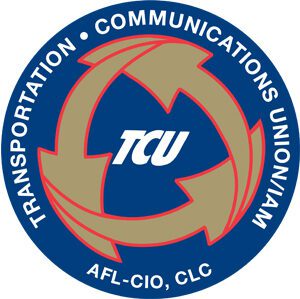Court Backs Labor on FMLA Leave
February 28, 2007—In what TCU legal experts call a “major victory,” the Seventh Circuit Court of Appeals has upheld the position of rail labor that where a collective bargaining agreement grants employees the right to determine when or how they use paid vacations or personal leave, those provisions prevent the railroads from requiring the substitution of such leave for Family Medical Leave Act (FMLA) leave. Under the court’s decision employees retain their right to determine if they wish to substitute paid vacation for unpaid FMLA leave. “The vacation agreements are the subject of apparently hard bargaining. The right to time one’s vacation and, to perhaps a slightly lesser degree, personal leave days, is a hard-won right of railroad workers,” the court said in its February 28, 2007 decision. “In short,” it concluded, “the FMLA does not allow the carriers to violate contractual obligations protected by the RLA regarding paid vacation and personal leave time.” TCU worked closely with the IAM and several other unions in challenging the carriers in this case.
The question arose because some carriers have required employees to use what paid leave they had before charging the time off as FMLA leave, while counting the time off concurrently against the 12 weeks allowed for unpaid FMLA leave. That is, the worker requesting FMLA leave was required by the railroad to substitute the paid leave for the unpaid, thereby using some or all of both.
The February 28 decision of the appeals court upheld an earlier district court ruling in favor of labor’s position. On appeal, the carriers argued that the FMLA substitution provision constituted an “implied amendment” to the Railway Labor Act. The Seventh Circuit rejected this argument, noting that implied amendments are not easily found. The court found that the two statutes could be reconciled since the FMLA stated that substitution was not forbidden, while the RLA “long protected important seniority rights established under the applicable collective bargaining agreements.” The court was clearly reluctant to find that the FMLA had overturned those agreements, noting that it would be “odd indeed” to say, as the carriers had argued, that decades of bargaining could be “wiped out by unilateral action on the part of the carriers based on a statute which says they may require substitution….” The court found that the carriers’ argument was untenable in the face of the RLA which specifically “forbids” such action.
The issue of whether existing agreements prohibit a carrier from requiring an employee to substitute vacation for FMLA leave is now pending arbitration.
Click to read the full decision.
Background:
The Family and Medical Leave Act of 1993 (FMLA) was signed into law by President Clinton on February 5, 1993 and was subsequently implemented through regulations issued by the Department of Labor. The FMLA is now incorporated in the Code of Federal Regulations as 29 CFR Part 825 (Final Rule, effective February 6, 1995).
The Act is intended to allow employees to balance their work and family life by taking reasonable unpaid leave for medical reasons, for the birth or adoption of a child, or the care of a child, spouse, or parent who has a serious health condition. The bill was supported by TCU and the entire labor movement.
The law has had far reaching impact both on our agreements and company policies. For example, several companies have unilaterally promulgated so-called “no fault” absenteeism policies that treat any absence by an employee, regardless of reason, as grounds for discipline. However, since FMLA absences are established by law, they cannot be used as a basis to discipline an employee.

